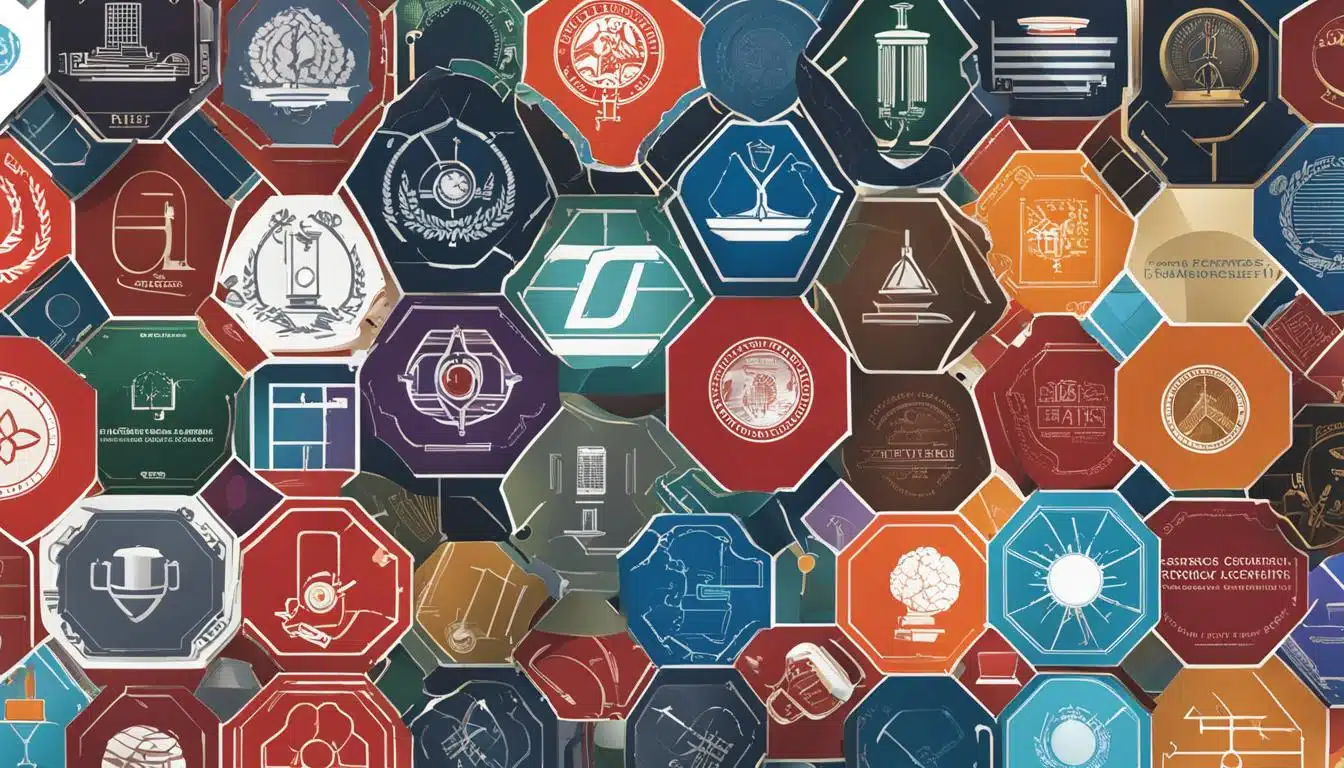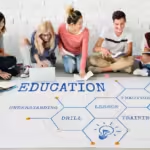Table of Contents
ToggleLearning about science is vital for students growing up today. It’s an important part of their education. Science education gives them skills like critical thinking and problem-solving.
By using the scientific method, students learn to study and solve things. These skills are key for all parts of their school and future life.
Science is all around us, from our gadgets to nature. Doing experiments and crossing subjects in science class can make students curious. This helps them get ready for success in STEM – science, technology, engineering, and math. Plus, it helps create the next group of scientists and thinkers who can tackle big issues.
Key Takeaways : Science Education
- Science education equips students with critical thinking, problem-solving, and analytical skills essential for success.
- Science is relevant to students’ daily lives, from technology to the natural world.
- Hands-on experiments and cross-curricular connections can spark curiosity and develop 21st-century skills.
- Science education prepares students to become scientists, innovators, and engaged citizens.
- Science education is crucial in a technologically and scientifically advanced world.
Science Is Everywhere
Science is all around us, in the tech we use and the nature we see. Things like the school bus, smartphones, and flat-screen TVs are thanks to science. It involves fields like mechanical, computer, and civil engineering.
Technology and Scientific Innovations
Technology and science have changed how we live, work, and talk. Our world is filled with complex machines and powerful computer chips. These are all thanks to science breakthroughs.
Natural World and Biological Processes
Nature itself is a big part of science. Trees turn sunlight into energy and make the air we breathe. Knowing this helps us see how much science matters in our lives.
Infrastructure and Engineering Marvels
Think of the big structures and systems around us. Bridges, highways, and even water facilities are made by engineers and scientists. Learning about them shows how much science is everywhere.
Exploring science shows its wide reach. It impacts the tech we use, the nature we love, and the structures that support us. This knowledge brings us closer to the science all around.
Also Read : How Can Job Seekers Effectively Customize Their Resumes?
Developing Critical Thinking and Problem-Solving Skills
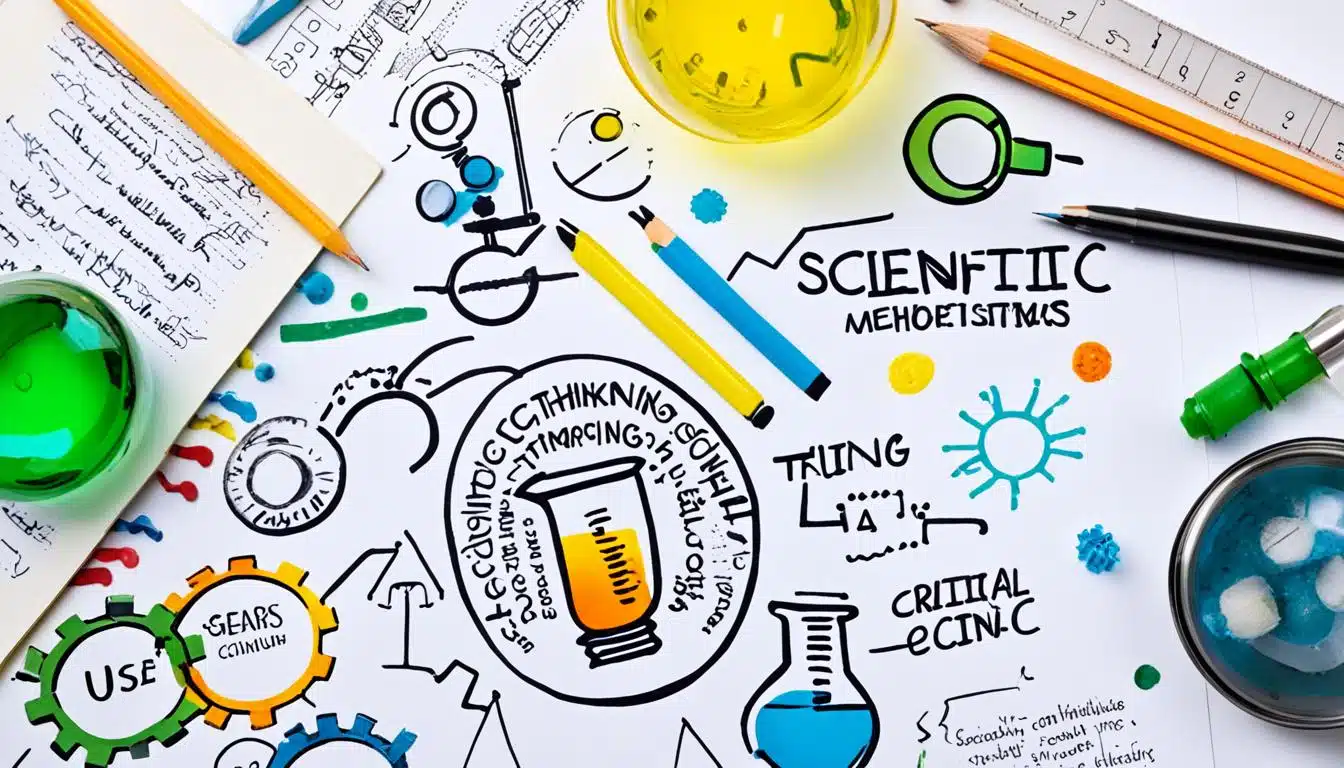
Science education is key to building critical thinking and problem-solving skills. Students learn the scientific method. It involves asking questions, making hypotheses, testing them, and looking at the results. This helps them think logically and solve problems based on facts. If this approach is used in real situations, it’s very effective.
The scientific thinking process also teaches students to create ideas. It shows them how to make smart decisions and understand how public policy is based on evidence. The abilities they get from studying science, like evaluating data, making conclusions, and sharing outcomes, are vital for doing well in school and later in life. When they apply these scientific tools in daily problems, students learn to be involved, well-informed citizens who can make wise choices.
Scientific Method and Inquiry
The scientific method is essential in science classes. It guides students through a logical, step-by-step method for investigating and solving problems. When they learn how scientific inquiry works, they become skilled at asking important questions, creating testable hypotheses, and setting up experiments to get data. This approach gives them the power to learn and understand the natural world and the complex systems within it.
Applying Scientific Thinking to Real-Life Scenarios
Science education equips students with problem-solving skills that help in many situations. They learn to check if information is accurate, make smart choices about public policy, and find new ideas for big world issues. Thinking scientifically is a huge asset. It teaches kids to look at problems with deep thought, using a basis of clear evidence. This is how science lessons help them cope with a world that’s becoming more challenging and full of facts.
Also Read : What Are The Key Responsibilities Of Education Administration Roles?
Promoting Technological Literacy
Science education is key to helping students understand technology. They learn the basics about how tech and science work. This knowledge sparks an interest in fields like engineering and computer science. Students may even want to create new tech themselves. Teaching science helps kids get curious and start thinking in new ways. It helps build skills for solving problems and being creative. With a good grasp of science and tech, students can do well as the world gets more filled with technology.
Understanding How Things Work
Science classes make students see how things around us work. They learn about the natural and tech systems that affect our lives. This lets them use science to solve problems in the real world and make smart choices based on facts.
Encouraging Innovation and Inventions
Teaching technology makes students want to try new things. This leads to creative ideas and new tech that can solve big problems. With the right skills, these students can be the future’s top engineers and tech leaders.
Also Read : Struggling To Find Job In Weekend Work? Consider These Job Search Tips!
Fostering Curiosity and Exploration
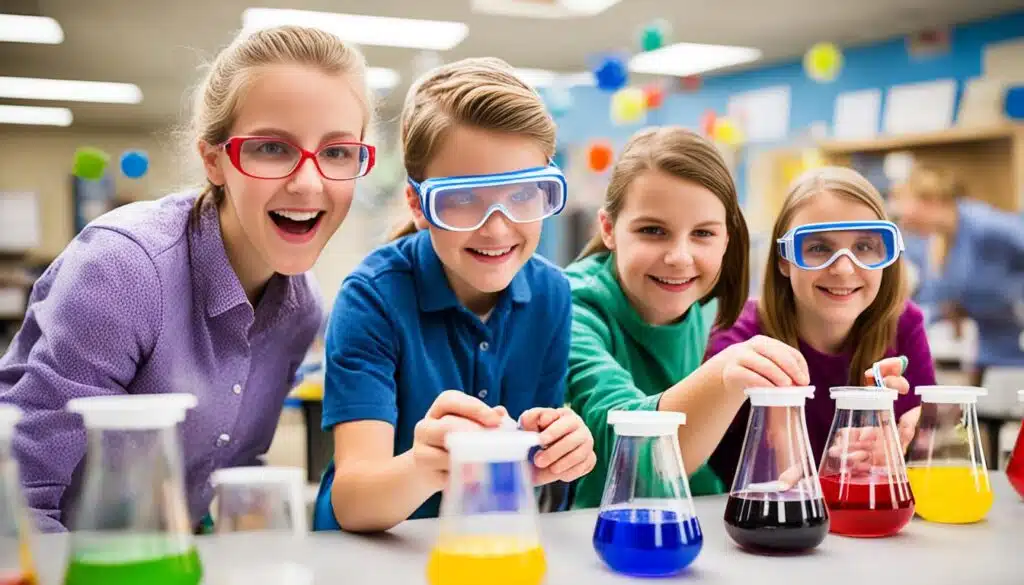
Science education sparks kids’ curiosity and love for exploring their world. They learn through hands-on experiments and activities. This way, they observe and ask questions. Doing this, they start independent investigations. This style of learning not only makes them love science but also boosts their critical thinking and problem-solving skills, useful in all subjects.
Hands-on Experiments and Activities
Letting students explore and experiment themselves turns them into life-long science fans. It encourages them to keep looking into scientific things they find interesting. This approach builds their confidence to handle tough tasks and make smart choices based on facts.
Asking Questions and Investigating Independently
By doing hands-on science, students dive deeper into how our world works. They use a problem-solving style to understand everything better. This way, they get good at asking good questions and thinking smartly. These are skills that will help them do well in school and life.
Also Read : How Can Arts Education Enhance Cultural Awareness And Understanding?
Science Education
Science education is essential for a good education. It connects with various subjects like reading and math. This cross-curricular approach helps students see science in everything. It prepares them for success in STEM-related fields.
Integrating Science Across Disciplines
In schools, starting science education early ignites children’s interest in STEM areas. It helps them build the knowledge and skills needed in today’s tech-focused world.
Building a Foundation for STEM Careers
The interdisciplinary method supports learning in different subjects. It also readies students for STEM jobs by teaching them basic and advanced science.
Early Exposure and Engagement
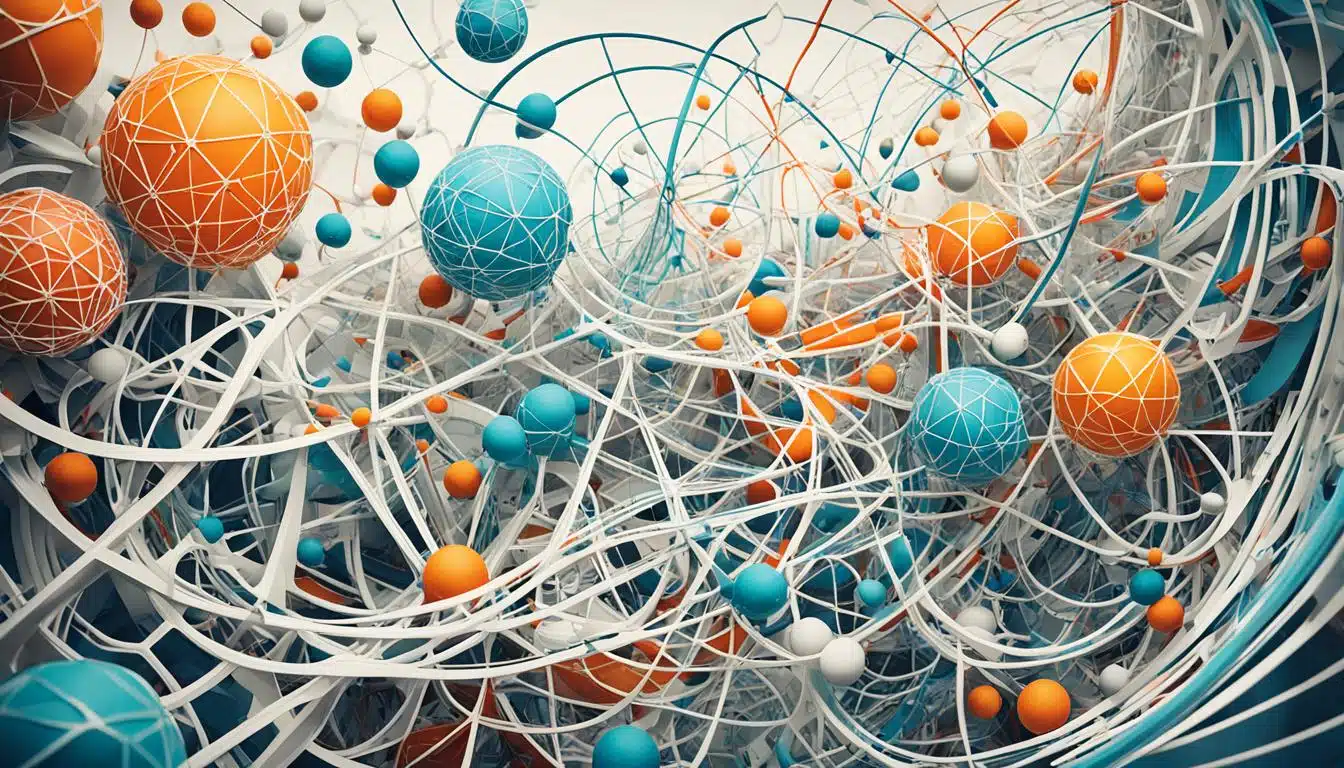
Teaching science early sparks kids’ interest and love for nature. If students don’t like science at first, it’s hard to change their minds later.
Sparking Interest from a Young Age
Engaging science activities make kids curious and eager to learn more. This early introduction to science helps with thinking and solving problems. It also gets kids ready for STEM and future careers.
Motivating Lifelong Science Learners
Keeping kids excited about science turns them into adults who love science. They’ll have the skills to tackle big world issues. Starting science education early builds a desire to learn that stays with them through school.
Promoting Critical Thinking and Evidence-Based Decision Making
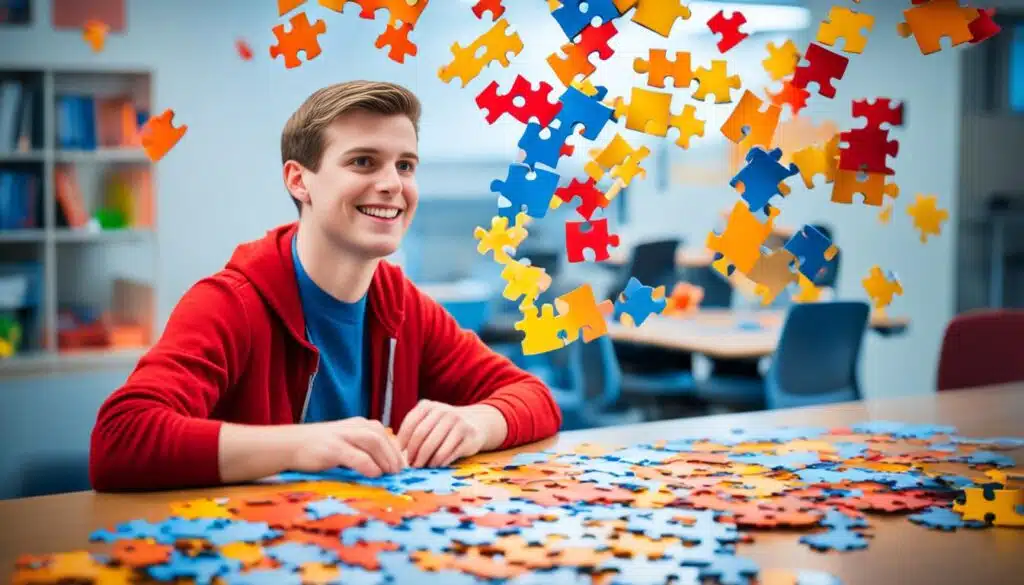
Science education helps kids learn to think critically and make decisions based on evidence. They learn the scientific method and how to ask questions. This makes them more logical and systematic in problem-solving. These skills are useful in many areas of life. They help kids make choices based on facts, not just what they feel.
Science teaches kids to look at a problem, think about different solutions, and share what they find. This process helps students not only in school and work but in their daily life too. By focusing on critical thinking and evidence-based reasoning, science education gives students the tools they need to succeed in our diverse and data-rich world.
“Science education is vital for developing the critical thinking and problem-solving skills that are essential for success in today’s rapidly changing world.” – Dr. Jane Doe, Director of STEM Education, University of California
| Skill Developed | Importance in Science Education |
|---|---|
| Critical Thinking | Enables students to analyze information, evaluate evidence, and make well-informed decisions |
| Evidence-Based Decision Making | Prepares students to be discerning, logical thinkers who can navigate complex, information-driven challenges |
| Problem Solving | Fosters a systematic, logical approach to tackling real-world problems using scientific principles |
| Analytical Skills | Equips students with the ability to generate ideas, weigh options, and communicate findings effectively |
Helping students think critically and back their decisions with proof is essential in science education. It arms them with skills to deal with growing amounts of information and complex issues.
Preparing for the Future

Science education is key for students to tackle future challenges and seize opportunities. In a world where technology leaps forward, it’s critical kids understand science. Learning scientific concepts helps them think critically, solve problems, and analyze issues. These are vital skills for an evolving, tech-based world.
Equipping Students for a Technologically Advanced World
Science learning tells us about the natural world and how it works. It helps students care for the Earth and solve its problems. By knowing science and thinking deeply, they’re ready to create new things. These can change our world for the better.
Addressing Global Challenges and Sustainability
Teaching science is like investing in future heroes. They’ll face big issues like the changing climate, saving resources, and living sustainably. With strong science and critical thinking skills, these students can offer long-lasting solutions. They’re the ones who will protect the future of our planet.
Cross-Curricular Benefits
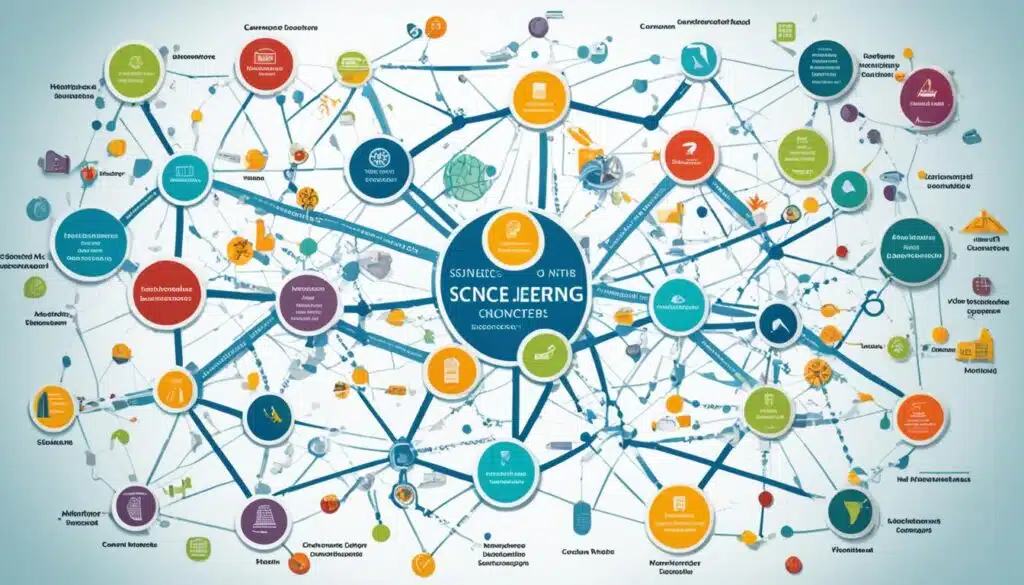
Science education isn’t just about science. It connects with other subjects like language arts and math. This helps students see how different areas of study are related.
Reading and Writing Skills
In science classes, students read and write a lot. They deal with hard texts, analyze data, and share their findings. This makes their literacy abilities stronger. Across all subjects, they learn how to read and write better.
Mathematical Reasoning
Science also makes students good at math. They learn to think through problems and use math in the real world. Seeing how science links with other subjects makes students more versatile. They’re ready for whatever comes next.
A combined approach to learning shows how all subjects work together. STEM concepts are used in every class. This makes students value how knowledge from different areas fits together. It’s like building a bridge through all learning.
Empowering Future Scientists and Innovators
Science education is vital for growing our future scientists, engineers, and innovators. It gives them a solid base in scientific ideas and methods. These are key for their future careers in science, technology, engineering, and math (STEM).
This education encourages students to be curious and creative. It drives them to want to learn more and work in STEM fields. With the world facing big issues like climate change and technology changes, we need these bright minds more than ever.
Investing in science education helps us create the next generation of problem-solvers and pioneers. These future leaders will have the skills needed to tackle our world’s biggest challenges in STEM. And they will make a lasting difference for our future.
| STEM Career Outlook | Projected Job Growth (2019-2029) |
|---|---|
| Software Developers | 22% |
| Biomedical Engineers | 5% |
| Environmental Scientists and Specialists | 8% |
| Aerospace Engineers | 3% |
By teaching students science, we prepare them to lead in STEM. This ensures they can overcome future challenges and make a difference. Their innovations will shape tomorrow’s world.
Building a Knowledge Base
Learning about science is key to knowing our world. Areas like biology, physics, and chemistry help us understand nature and technology. This knowledge lets students solve real problems using facts and smart thinking.
Understanding Complex Systems
Science teaches students how things work, from our bodies to cities. It shows the complexity of systems around us. Knowing how these systems work makes students better problem-solvers.
Applying Scientific Knowledge
Learning science helps tackle big issues and create new technologies. It makes students understand global problems. This way, they can make the world a better place.
Also Read : Top Civil Engineering Colleges In The USA 2024
Conclusion
Science education is vital for students today. It gives them skills like critical thinking and technology use. These skills help them excel in a world driven by technology. Teachers engage students with hands-on experiments and exploration. This deepens their love for our natural world and its laws.
With a solid science education background, students can think clearly and analyze data. Such skills are key for STEM education, future jobs, and daily life. Also, science sparks curiosity and exploration. This can motivate students to choose careers in science and technology, shaping them into innovators and problem-solvers.
In view of fast-changing times and tough global issues, science knowledge is crucial. We must invest in a broad science education. It should focus on critical thinking, problem-solving, and cross-curricular work. This will ensure students are ready for the big issues of the future. They’ll be prepared to help our society move forward.
FAQs
Q: Why is it important to focus on science education?
A: Science education is crucial for today’s students as it helps them develop critical thinking skills, scientific literacy, and an understanding of the world around them. It also prepares them for future careers in STEM fields.
Q: How can a science teacher inspire students to pursue careers in science?
A: A science teacher can inspire students by making the subject engaging, relevant, and hands-on. They can also serve as role models and expose students to real-world applications of science.
Q: What are some key components of a quality science teacher education program?
A: A quality science teacher education program should include a strong curriculum that covers content knowledge, pedagogy, and hands-on teaching experience. It should also incorporate the latest research and best practices in science education.
Q: What role do professors play in shaping the future of science education?
A: Professors play a critical role in shaping the future of science education by conducting research, developing curriculum, mentoring future educators, and advocating for policies that support effective science teaching.
Q: How can science education programs support the goal of promoting equity in STEM fields?
A: Science education programs can support equity in STEM fields by providing access to high-quality education for all students, regardless of their background. They can also promote diversity and inclusion in the sciences.
Q: How can teachers incorporate topics like climate change into their science curriculum?
A: Teachers can incorporate topics like climate change into their science curriculum by integrating real-world examples, current research, and hands-on activities that illustrate the impact of climate change on the environment.
Q: What are some resources available for science teachers to stay updated on the latest science education news?
A: Science teachers can stay updated on the latest science education news by subscribing to online publications, attending conferences and workshops, joining professional organizations, and following reputable science education websites and blogs.
